
Soguksa Buddhist Temple in North West Seoul, South Korea travel
Bulguksa ( Korean : 불국사) is a Buddhist temple on Tohamsan, in Jinheon-dong, Gyeongju, North Gyeongsang Province, South Korea. It is a head temple of the Jogye Order of Korean Buddhism and contains six National Treasures, including the Dabotap and Seokgatap stone pagodas, Cheongun-gyo (Blue Cloud Bridge), and two gilt-bronze statues of Buddha.
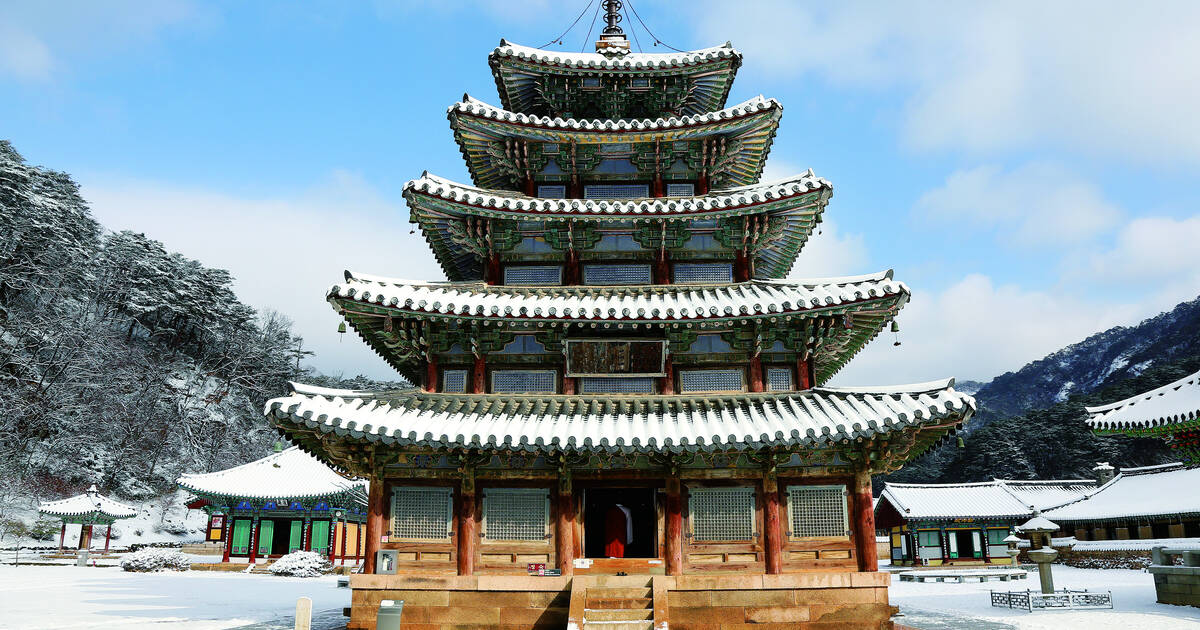
Sansa, Buddhist Mountain Monasteries in Korea UNESCO World Heritage
Tongdosa is the largest temple in Korea and is considered as one of the Three Jewel Temples of Korea. The temple is famous for its lack of statues and is often called 'the temple without a Buddha'. Instead the courtyards in the temple are structured around several pagodas and a Buddhist altar. The legend holds that an eternal flame was.
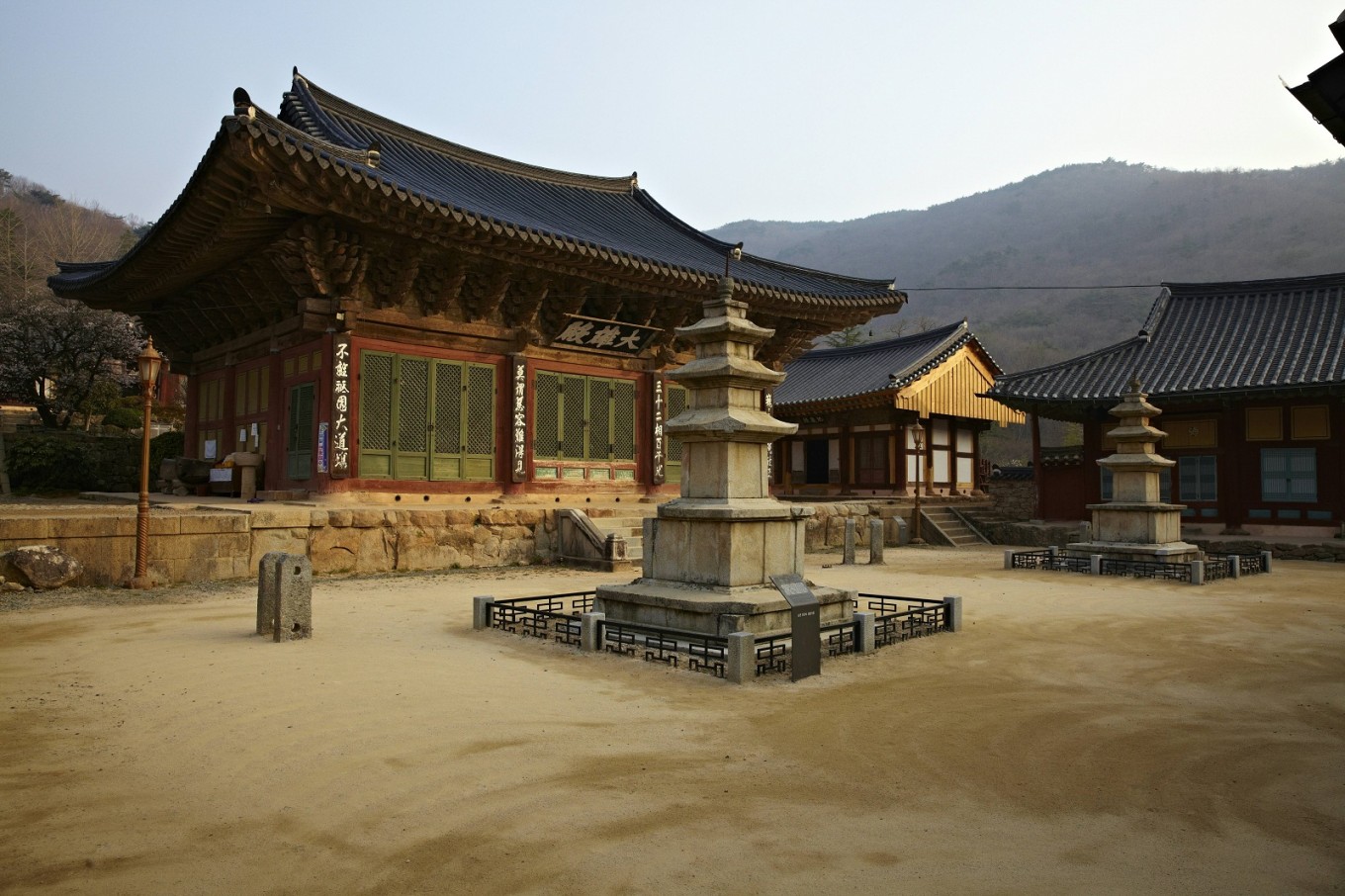
UNESCO lists Korean mountain Buddhist temples as World Heritage sites
Haeinsa ( Korean : 해인사) is a Buddhist temple in Gayasan National Park, South Gyeongsang Province, South Korea. It is the head temple of the Jogye Order of Korean Seon Buddhism.
Buddhist Temple, Nampo District, Busan, Stock Photo
Jogyesa Temple is one of the most important Buddhist temples in Korea and a symbol of Korean Buddhism. It is located in the heart of the city near Insa-dong. Since 1936, it has been the head temple of the first district of the Jogye Order of Korea Buddhism. The temple was first established in 1395, at the start of the Joseon Dynasty.

Check out these colorful photo of Jogyesa, a Buddhist temple in South
Nirvāṇa Traditions Buddhism by country Religion portal v t e Buddhist temples are an important part of the Korean landscape. Most Korean temples have names ending in -sa ( Korean : 사; Hanja : 寺 ), which means "monastery" in Sino-Korean .
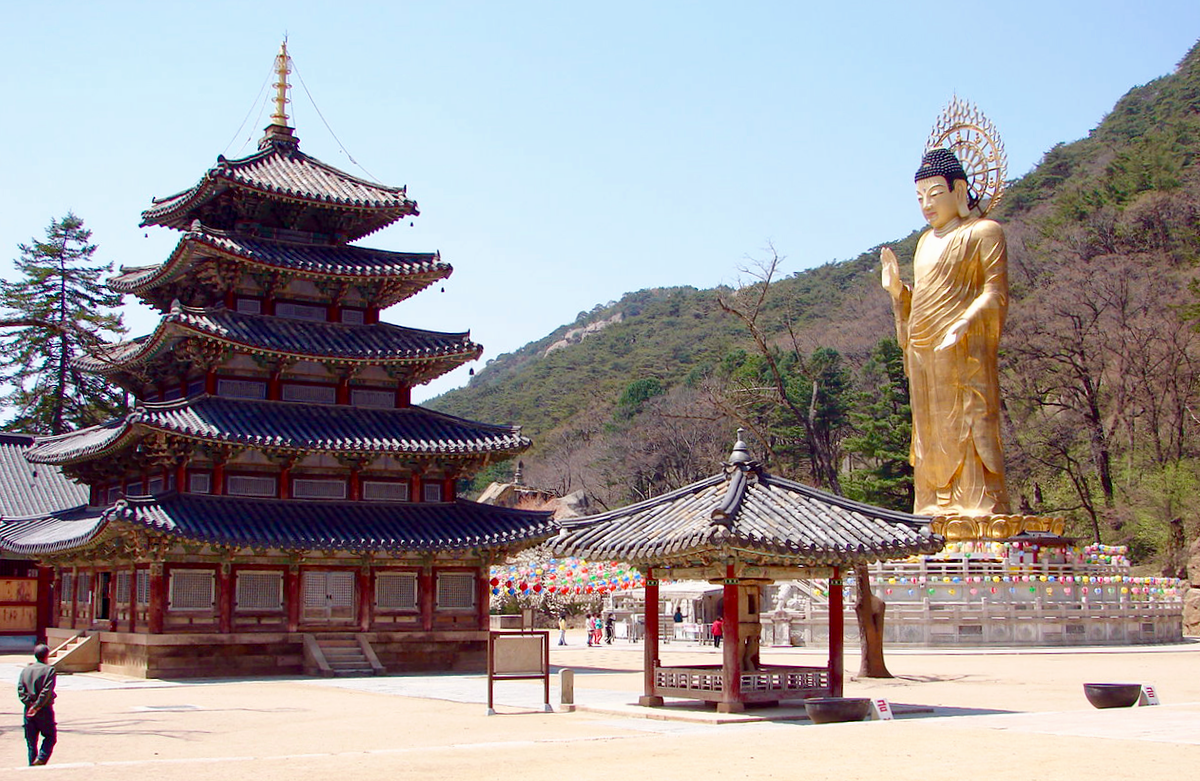
UNESCO adds seven Korean Buddhist temples to World Heritage list
There are some 900 traditional Buddhist temples in South Korea - and around 20,000 in total. A visit to any of these local places of worship - many of them centuries old — can be a humbling.
Fall colors of Buseoksa Temple, one of the oldest Buddhist temple in
The temple houses a special Buddhist sanctum inside a cave on the right side of the main sanctuary and features a three-tiered pagoda with four lions representing different emotions - joy, anger, sadness, and happiness. A highlight is the ascent of 108 steps and the presence of stone lanterns along the rugged terrain.
_-_Templi.jpeg)
Korean Buddhist temples Alchetron, the free social encyclopedia
In 375 the monarch built Korea's first Buddhist temple (성문 사 - Seongmunsa) and proclaimed the doctrine of the Asian spiritual master as the official religion. Around the same time, in the year 384, a monk from India began teaching Buddhism in the kingdom of Baekje, where King Asin proclaimed: "People should believe in Buddhism and.
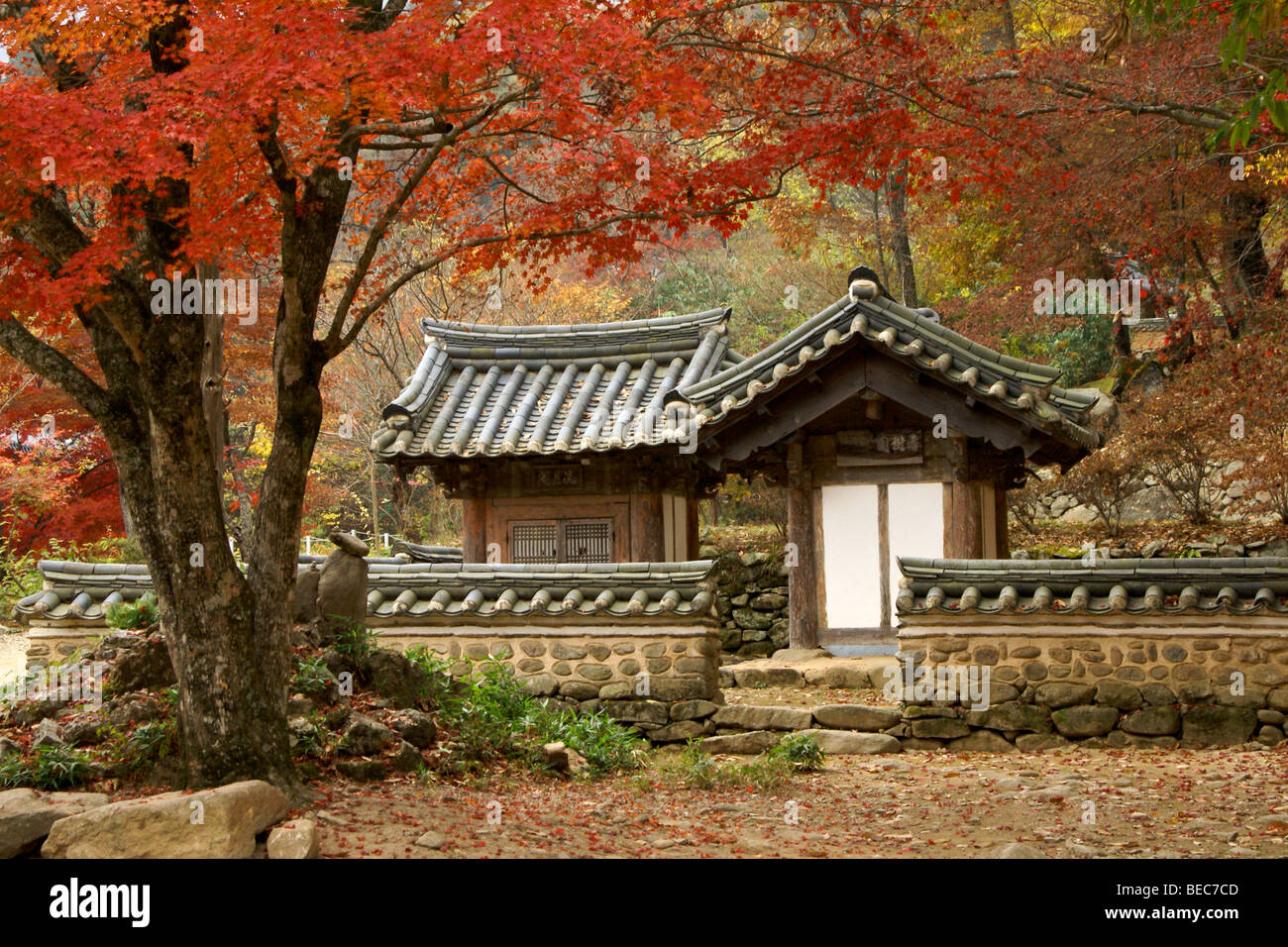
Seonamsa Buddhist temple, Suncheon, South Korea Stock Photo Alamy
A Buddhist landmark in the Jongno-gu district of South Korea's capital, the colourful Jogyesa temple offers a chance to relax in bustling Seoul, as well as traditional activities.
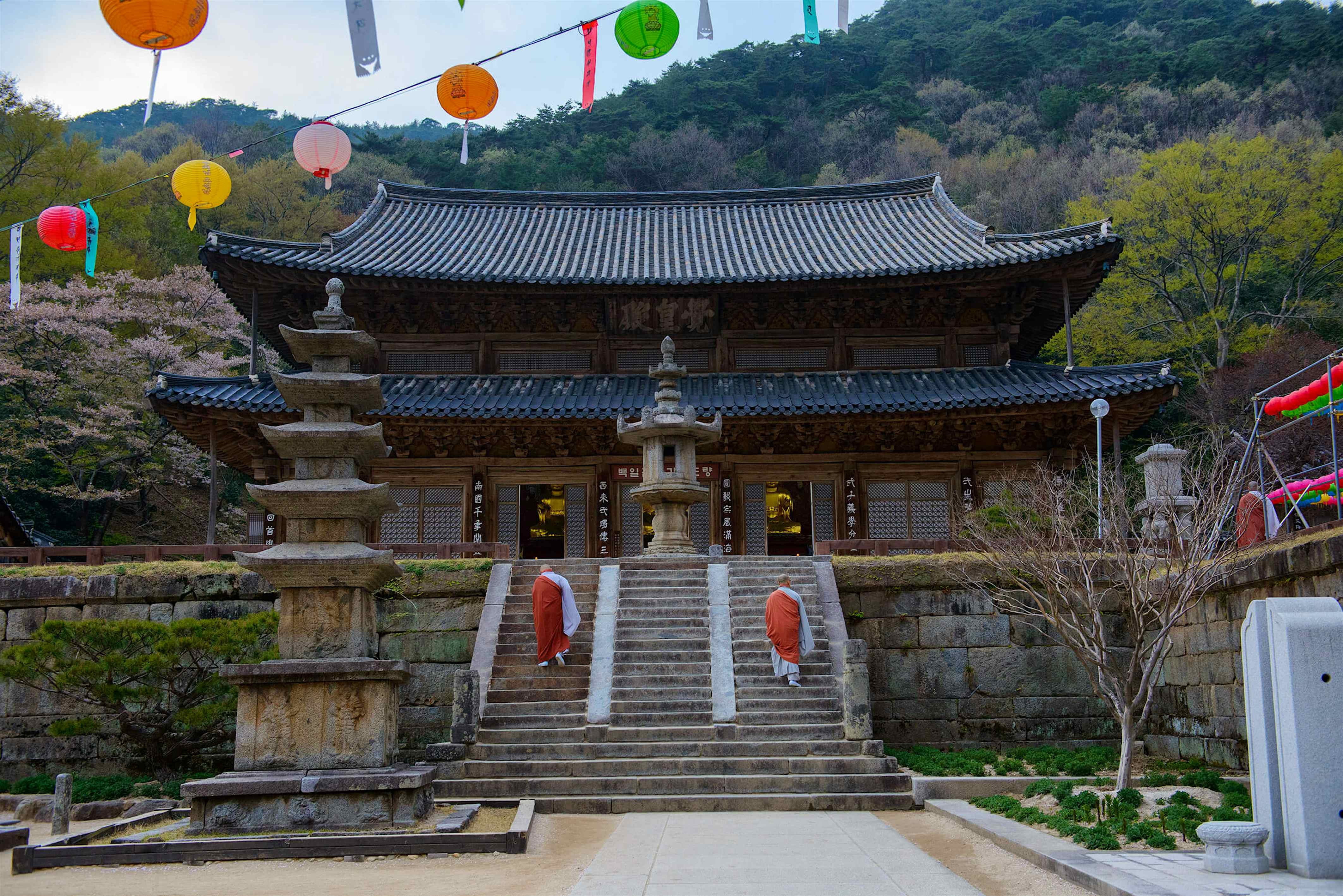
South Korea is encouraging travellers to stay in Buddhist temples
It flourished during the reign of the King Jinheung (540 to 576). The Heungnyunsa temple was completed where any commoner could become a monk. The study of scriptures was greatly highlighted. For about 250 years Buddhism thrived in Unified Silla. Buddhism was admired by Wang Geon, the founder of the Goryeo Dynasty.

Buddhist temple, South Korea South korea, Buddhist temple, Shinto
Constructed in 1395, Jogyesa is South Korea's most important temple. It is the chief temple of the Jogye Order that represents the largest segment of the country's Buddhist population -.

Seven Buddhist mountain temples gain UNESCO World Heritage status
A Buddhist Temple Is a Complex of Buildings Buddhism was introduced to China from India and Central Asia, and it was already prevalent in China by the fourth century when the religion was first introduced to the Korean peninsula.
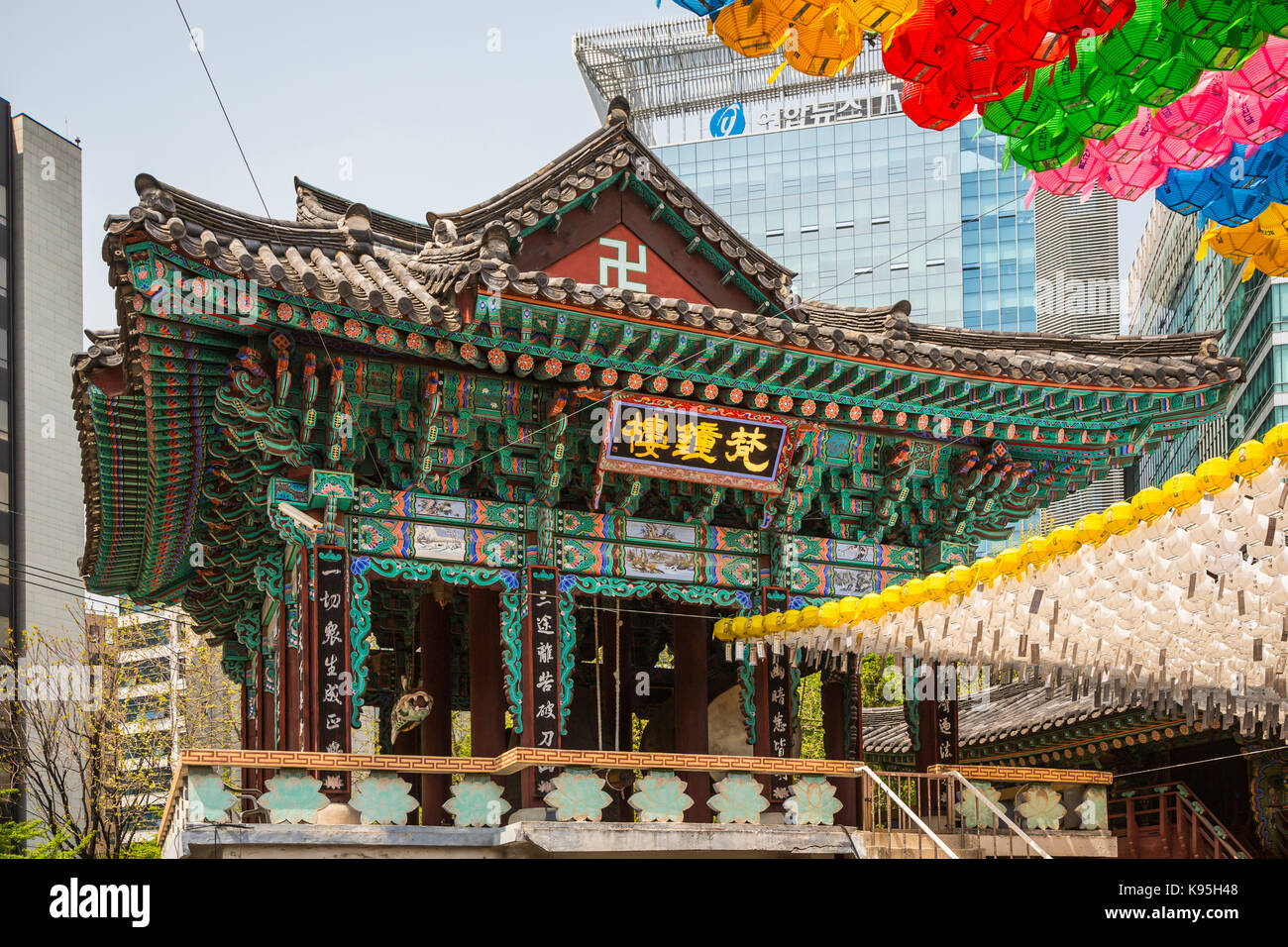
The colorful Jogyesa Buddhist Temple in Seoul, South Korea, Asia Stock
This is a list of Buddhist temples, monasteries, stupas, and pagodas ' in South Korea for which there are Wikipedia articles, sorted by location. Daejeon Musangsa Gyeonggi Bongseonsa Silleuksa Yongjusa Gangwon Naksansa Naksansa Oseam Sinheungsa Woljeongsa North Chungcheong Beopjusa Guinsa South Chungcheong Magoksa Sudeoksa North Gyeongsang
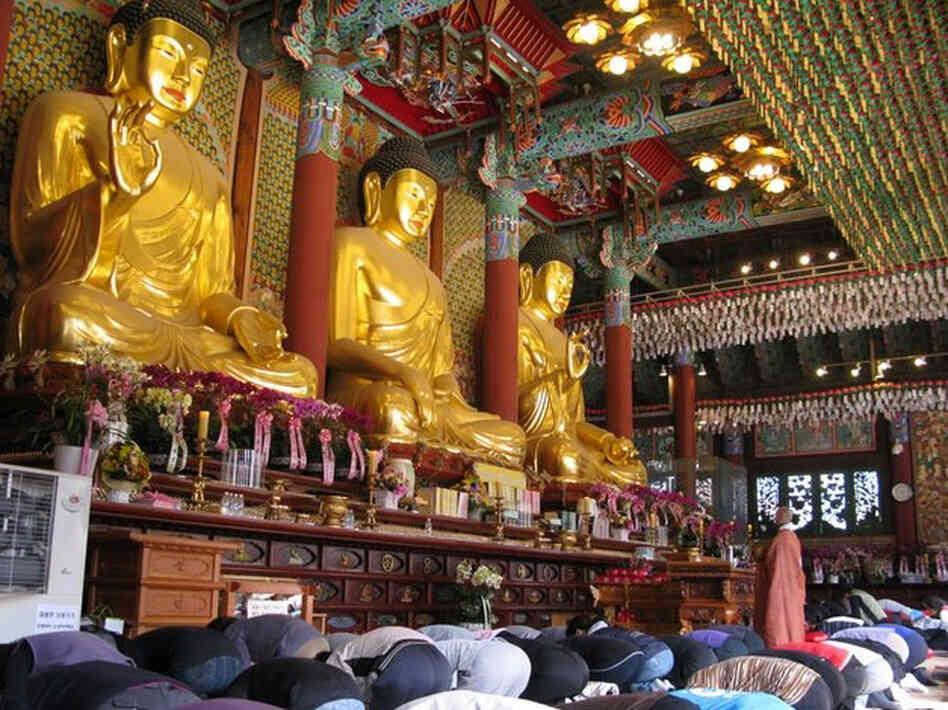
Jogyesa Buddhist Temple Seoul Location Map Seoul Weather and Airport
1 Buddhism in South Korea 2 How many Buddhist temples are there in South Korea? 3 What cultural rules are there for visiting Buddhist temples? 4 Why were these temples chosen for the South of Seoul Buddhist Temples Adventure Map? 5 Buddhist Temples Adventer Map 6 20 Must-Visit Buddhist Temples in South Korea 6.1 Gakwonsa Temple5 6.2 Cheonchuksa0

ANCIENT BUDDHIST TEMPLES IN KOREA Aloka
Beopjusa (Korean: 법주사; Hanja: 法住社, lit. 'Residence of Dharma' or Beopju temple), is a head temple of the Jogye Order of Korean Buddhism.It is situated on the slopes of Songnisan, within Songnisan National Park, in Naesongni-myeon, Boeun County, in the province of Chungcheongbuk-do, South Korea.. It was initially constructed in 553 by Silla monk Uisin.

Jogyesa Buddhist temple, Seoul.... Korea travel, Seoul korea, Seoul
Don't you know there are 900 traditional Buddhist temples in South Korea? Buddhist temples are an important part of the Korean landscape. You can visit the temples for a short-time during our tour or join a temple-stay program on your own which lets you experience the life of Buddhist practitioners.